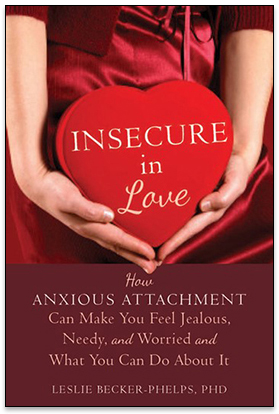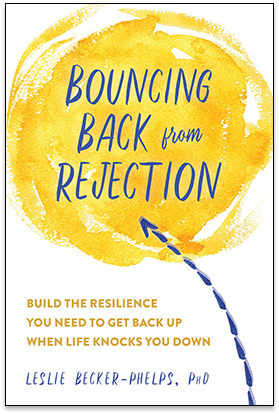CSA
Compassionate Self-Awareness, (CSA)
“Confront the dark parts of yourself, and work to banish them with illumination and forgiveness. Your willingness to wrestle with your demons will cause your angels to sing. Use the pain as fuel, as a reminder of your strength.”
–August Wilson, American playwright
I love this quote. It captures what is at the heart of emotional healing and personal growth. It is also at the heart of compassionate self-awareness (CSA), an ability that can help you develop a rich understanding of yourself from a compassionate perspective.
Facing the parts of yourself that you don’t like, or are afraid of, is one of the most difficult tasks in life. And what Mr. Wilson is pointing out in his poetic statement is the importance of summoning motivation and fortitude from deep within to shed light on and confront unwanted or disowned parts of yourself.
By increasing your compassionate self-awareness, you can nurture your growth toward:
- Emotional healing
- Increased sense of well-being
- Personal growth
- Improved relationships
CSA: A Pathway to Change
Personal change involves overcoming inner obstacles, whether they are just entrenched habits or they stem from painful inner struggles that you prefer not to face. Compassionate self-awareness can help you to identify these inner obstacles and move past them.
Frequently, people’s struggles are related to their “hard-wired” attachment system, which is driven by the need to connect with – or attach to – others. Beginning in infancy, people’s experiences with caretakers strongly influences the way they relate to themselves and to others. When these connections or relationships are positive, they are said to be “securely attached.” They are better able to make personal changes and live happy, healthy lives. However, if all does not go well, they develop an insecure attachment style and may struggle with perceiving themselves negatively and/or perceiving others as emotionally unavailable to them. These insecure ways of relating make personal change difficult. To learn more about attachment styles, read Learning Your Attachment Style Can Light Up Your Life.
Whether or not you struggle with an insecure attachment style, compassionate self-awareness can help you to relate more positively to yourself and others. As you develop CSA, you will find that you have greater empathy, compassion, forgiveness, and inner peace. Importantly, these experiences will likely enhance your desire to want the best for yourself and motivate you to act on that desire. You will also be better able to nurture healthy relationships. As a result, you will be more proactive and persistent in making the personal changes that matter most to you.
Compassionate Self-Awareness (3 minutes)
Developing Greater Self-Awareness Through STEAM
Whether you struggle with chronic anxiety, debilitating depression, or a repeating pattern of bad relationships, you can change the aspects of yourself that are at the root of your problems.
There are many therapeutic approaches that can help. However, they all begin with some form of increased self-awareness. This is essential because, as in any other area of life, to solve a problem, you must get to really know it.
One powerful way that you can gain a richer appreciation for yourself and begin to change is by increasing your self-awareness in 5 basic areas called STEAM:
Sensations: What do I sense in my body?
Thoughts: What am I thinking? What do I think about my thinking?
Emotions: What am I feeling?
Actions: What are my actions? What are my reactions? (This includes behaviors such as yelling, bodily responses such as yawning, and urges to act even when you don’t do so, such as wanting to hit someone.)
Mentalizing. This last domain, Mentalizing, is essentially the ability to understand people’s behaviors by understanding and connecting with underlying thoughts, feelings, desires, and other inner experiences. Importantly, you can mentalize yourself and other people. Questions associated with this are:
Do I really “get” what is going on for me and understand what is motivating my actions?
Do I really “get” what is going on for the other person and understand what is motivating their actions?
You can get started learning to increase your self-awareness through STEAM by reviewing the Gain Self-Awareness Through STEAM information sheet. Use it as a guide to practice accessing and thinking through the different domains of awareness in specific emotional situations.
As you increase your self-awareness, you can begin to see your struggles – and how you respond to them – more clearly.
Adding Self-Compassion to Self-Awareness
You demonstrate self-compassion when you are aware of your own suffering and want to relieve it, whether or not you can actually do this. With self-compassion, you are supportive of – and encouraging toward – yourself when you are struggling. So, when you increase your self-awareness from this compassionate perspective, you will discover that you can face your difficulties in a more caring way; and forgive any weaknesses or parts of yourself that upset you.
The resulting compassionate self-awareness (CSA) can soothe your emotional distress and bring about healing. It can also nurture positive self-perceptions and help you to be more willing – even motivated – to strive toward personal growth.
Learn More About CSA and STEAM
There are many ways to learn more about improving your life through CSA and building self-awareness in the areas of STEAM. Some key ones are:
Read
Print and Review the Gain Self-Awareness Through STEAM information sheet. Practice answering basic questions that guide you in reflecting on your Sensations, Thoughts, Emotions, Actions, and Mentalizing.
Read Insecure in Love, a book that offers readers a way to overcome their anxieties and insecurities in intimate relationships.
Read Bouncing Back from Rejection, a book that offers readers a way to face and overcome their sensitivity to, and fear of, rejection.
Read articles on my Psychology Today Making Change blog. For example, you might begin with:
Read my articles on WebMD’s Relationships blog for guidance on how to build healthy relationships. They emphasize self-awareness and awareness of others, along with compassion, as a way to strengthen relationships. For instance, you might begin with:
- How to Stop Making the Same Relationship Mistakes
- How to Stop Intense Emotions from Overtaking You
- When You’re in an Affair
Watch my YouTube channel
I have created playlists to help you nurture each of the elements of compassionate self-awareness, self-awareness and self-compassion.
The Insecure in Love and Bouncing Back from Rejection playlists include videos that relate to these books, which teach how to develop CSA as a way to create healthier intimate relationships and building resilience to rejection.
Compassionate Self-Awareness: This playlist includes videos that explain the concept of compassionate self-awareness and how it can help you heal and grow.
Building STEAM: Domains of Self-Awareness: Attend to 5 domains of awareness to help you build compassionate self-awareness. These domains, collectively called STEAM, are: Sensations, Thoughts, Emotions, Actions, and Mentalizing. This playlist offers some education and guidance for building awareness in each domain.
Improve Your Life with Emotional Awareness: This playlist highlights the domain of emotions in STEAM. It addresses various ways in which building awareness can help you cope better with difficulties and nurture greater well-being.
Nurture Self-Compassion & Inner Well-Being: Central to the idea of compassionate self-awareness is compassion and other positive experiences that are associated with it, such as empathy, forgiveness, and gratitude. This playlist offers education and guidance for building these inner resources.
Insecure in Love: This playlist offers videos that relate to the book, Insecure in Love. The focus of this book and these videos is on helping people understand and overcome their anxieties and insecurities in intimate relationships.
Bouncing Back from Rejection: The focus of this book and these videos is on helping people to overcome their rejection sensitivity by facing rejection and their fears of it. In doing this, people become more resilient to rejection. This playlist includes videos that focus specifically on helping people increase their awareness of rejection sensitivity in each domain of STEAM.
Schedule a Guided Self-Help Consultation
I offer this for those who are reading Insecure in Love, Bouncing Back from Rejection, my other writings, or watching my videos, and would like to consult on clarifying the information and how it might apply to their lives. These consultations are an excellent opportunity to help you nurture compassionate self-awareness. This service offers education and advice in a way that is more like coaching than therapy. I offer it by telephone (for those in the U.S) and videoconferencing. Learn more…
Free Yourself from Relationship Insecurities with:
 |
 |
